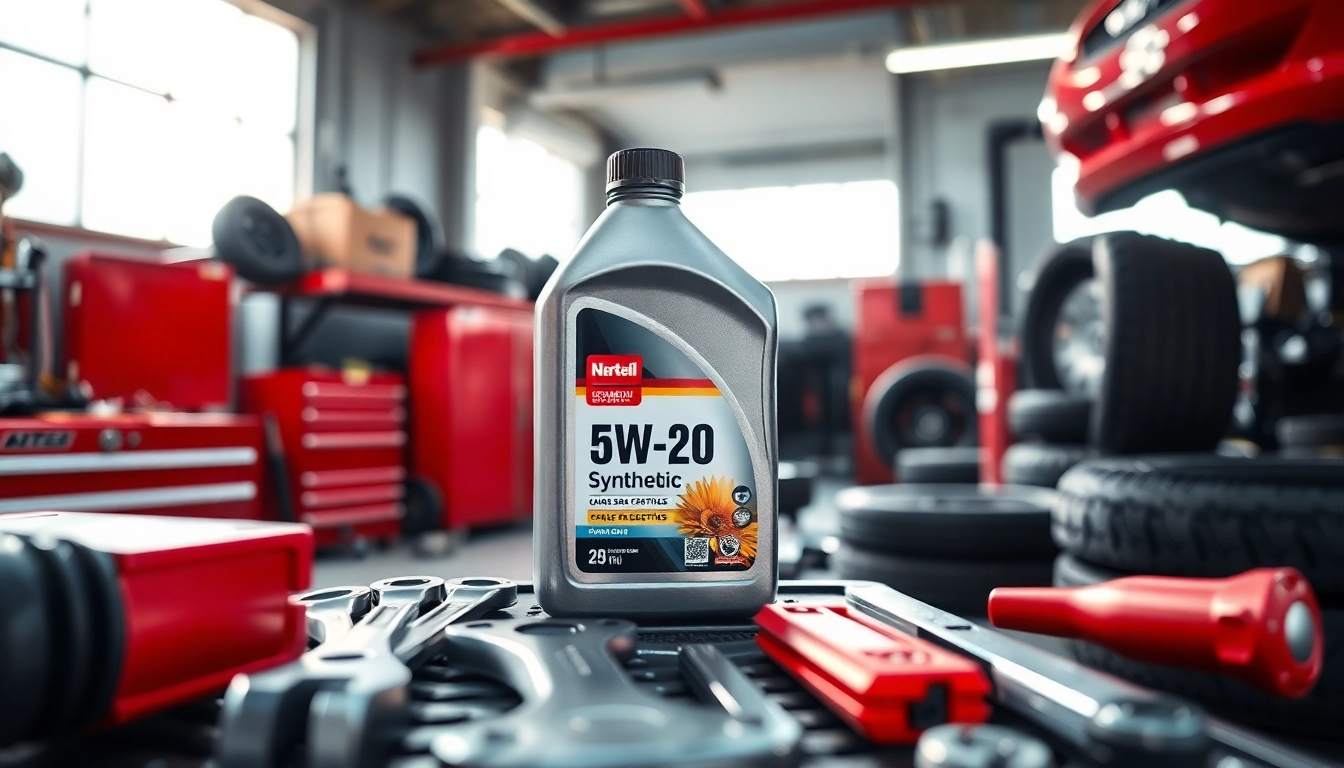What is 5W20 Oil Synthetic?
Definition and Composition
5W20 synthetic oil is an advanced lubricant designed to provide superior performance and protection for modern engines. The “5W” denotes its cold temperature viscosity rating, which indicates it behaves like an SAE 5 oil at lower temperatures, allowing for easy cold starts. The “20” denotes its viscosity at operating temperatures, indicating it maintains a certain thickness at high temperatures. In summary, 5W20 is formulated to provide efficient lubrication under both cold and hot conditions, which is essential for the optimal functioning of contemporary automotive engines.
Benefits of Synthetic Oil
Synthetic oils are engineered using advanced technology and high-quality base oils, resulting in several significant benefits over traditional mineral oils, including:
- Enhanced Performance: Synthetic oils maintain their viscosity better in extreme temperatures, promoting better engine performance and fuel efficiency.
- Reduced Engine Wear: The inflammation of additives in synthetic oils reduces friction between engine parts, leading to longer engine life.
- Better Stability: Synthetic oils resist oxidation and breakdown, allowing for longer intervals between oil changes.
- Environmental Benefits: Lower oil consumption and emissions contribute to a more environmentally friendly vehicle operation.
How 5W20 Compares to Other Grades
5W20 oil is commonly compared to other viscosity grades, such as 0W20 and 5W30. For instance, while 0W20 is suitable for colder climates and offers even lower resistance at startup, it might not provide adequate protection under higher temperatures compared to 5W20. In contrast, 5W30 oil offers thicker protection in high temperatures but may lead to reduced fuel efficiency in small engines. Each oil grade has advantages, depending on the climate and engine type.
Key Advantages of Using 5W20 Synthetic Oil
Improved Engine Performance and Efficiency
Utilizing 5W20 synthetic oil leads to enhanced engine performance, as it remains stable and effective across a broader range of temperatures compared to conventional oils. This stability helps maintain optimal fuel efficiency, especially in cars with tighter engine tolerances, ultimately saving you money at the pump.
Longer Oil Change Intervals
One of the major advantages of using 5W20 synthetic oil is the extended interval between oil changes. Most manufacturers recommend changing synthetic oil approximately every 10,000 to 15,000 miles, depending on driving conditions. This translates to less frequent maintenance, which is both time-saving and cost-effective in the long run.
Enhanced Protection Against Engine Wear
Synthetic oils, particularly 5W20 variants, are formulated with specialized additives that help mitigate engine wear. These oils create a robust protective layer over engine components, which minimizes friction and enhances the lifespan of crucial parts, including pistons and bearings.
Choosing the Right 5W20 Synthetic Oil
Recognizing Quality Certifications
When selecting a 5W20 synthetic oil, it’s essential to look for quality certifications such as the American Petroleum Institute (API) and the International Lubricant Standardization and Approval Committee (ILSAC) ratings. These certifications ensure the oil meets specific performance and protection standards that enhance engine efficiency and longevity.
Selecting the Best Brand for Your Vehicle
Choosing a reputable brand is vital when purchasing 5W20 synthetic oil. Top-tier brands like Mobil 1, Valvoline, and Pennzoil offer products formulated with high-quality base oils and advanced additives that meet OEM specifications. Monitoring user reviews and expert recommendations can guide you towards the best choice for your vehicle.
Understanding Packaging Sizes (1 Quart vs. 5 Quart)
5W20 synthetic oil is available in various packaging sizes, from single quarts to larger 5-quart containers. Understanding your vehicle’s oil capacity is crucial; for instance, a typical engine might require around 5 quarts for an oil change. Purchasing in bulk can often lead to savings while ensuring you have enough oil for regular maintenance.
Common Misconceptions About 5W20 Synthetic Oil
Misinformation Compared to Conventional Oil
Many misconceptions surround synthetic oils, with a primary belief that they are simply overpriced conventional oils. In reality, 5W20 synthetic oil provides superior performance due to its refined formulation and the inclusion of advanced additives that enhance its properties far beyond those found in conventional oils. Understanding these differences is crucial for making informed decisions about oil choices.
Can You Mix Synthetic with Conventional Oil?
It is technically possible to mix synthetic and conventional oils without causing immediate harm to your engine. However, doing so can dilute the advantageous properties of the synthetic oil, thus defeating its benefits. It’s generally recommended to maintain the integrity of the oil type being used for optimal engine performance.
How Long Does 5W20 Synthetic Last?
A typical interval for changing 5W20 synthetic oil ranges from 10,000 to 15,000 miles, depending on driving conditions and oil quality. It’s crucial to check the manufacturer’s recommendations and monitor oil condition regularly, especially if the vehicle experiences extreme driving situations.
Consumer Recommendations and Reviews
Top Brands of 5W20 Synthetic Oil
Popular brands such as 5w20 oil synthetic by Mobil 1, Valvoline, and Pennzoil lead the market due to their reputation for quality and reliability. Mobil 1’s advanced formulation, for example, ensures excellent performance under various conditions.
Real User Experiences and Feedback
Consumer reviews often highlight the superior performance and longevity of 5W20 synthetic oils. Users report improved engine responsiveness, better fuel mileage, and a noticeable decrease in engine noise upon switching to synthetic oils. Feedback from the automotive community suggests that investing in quality synthetic oil pays off in engine health and efficiency.
How to Properly Dispose of Used Oil
Proper disposal of used oil is vital for environmental protection. Many local auto parts stores and municipalities offer recycling programs. It’s essential to store used oil in sealed containers and take it to designated recycling centers. Never dispose of oil in the trash, down drains, or on the ground, as it can harm the environment.



